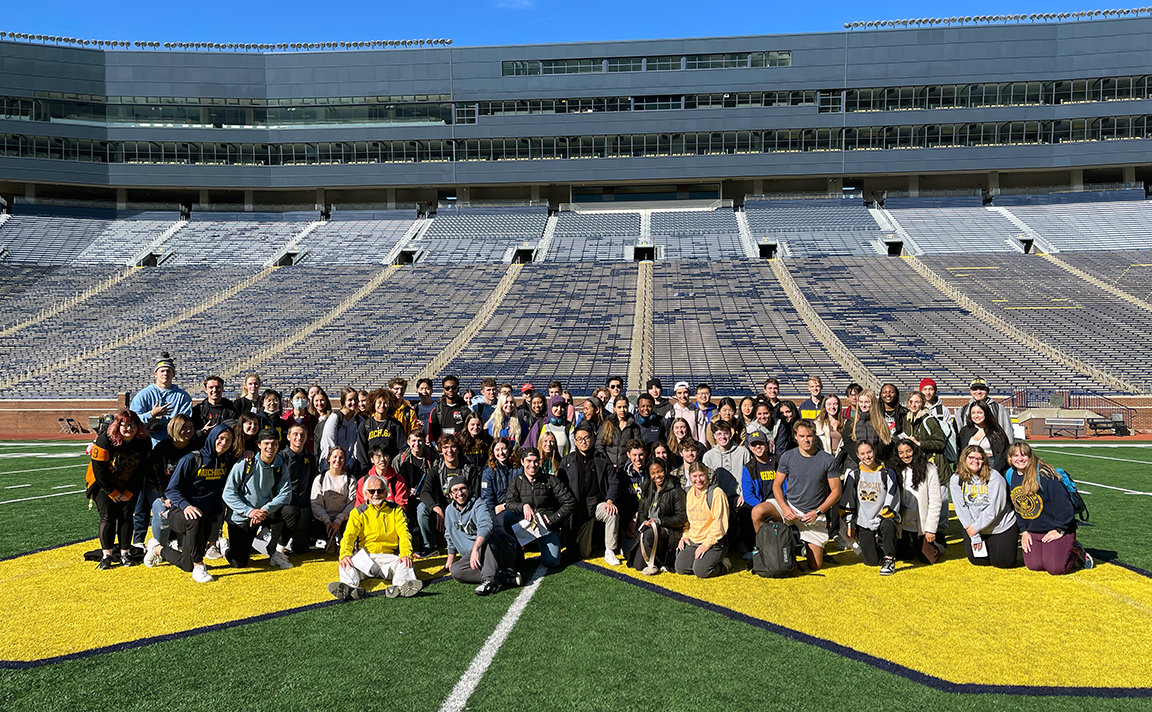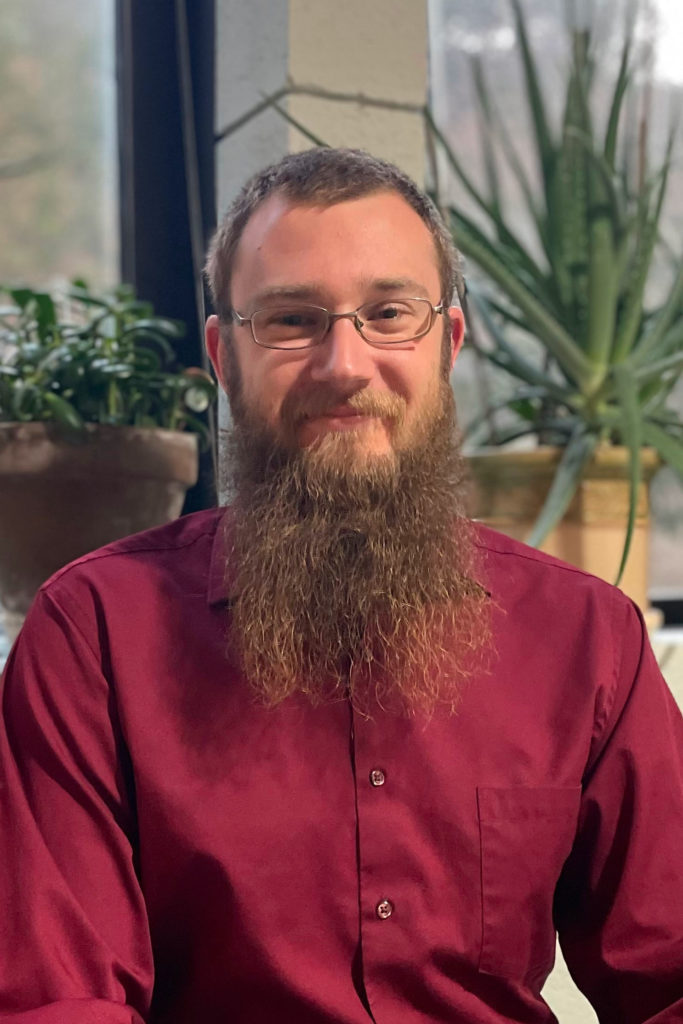
Keebler Named Outstanding Graduate Student Instructor
After leading class in the U-M Stadium, Timothy Keebler has been honored with the Richard & Eleanor Towner Prize for Outstanding Graduate Student Instructors.

After leading class in the U-M Stadium, Timothy Keebler has been honored with the Richard & Eleanor Towner Prize for Outstanding Graduate Student Instructors.
Each year, the College of Engineering celebrates good teaching with the Richard & Eleanor Towner Prize for Outstanding Graduate Student Instructors. Timothy Keebler, who teaches “CLIMATE 102: Extreme Weather,” was named one of the 2023 Towner Prize winners.
Keebler engaged his 100-level meteorology students in a unique field experiment at the Big House, measuring stadium temperatures to understand the flow of energy, and utilized an interactive platform to keep large lectures dynamic and inclusive. While the University of Michigan Stadium is usually best known for its reign in Big Ten Football, this gave students a rare opportunity to experience the stadium in a different way.

Despite being the only GSI for the 238 student course, Keebler wasn’t deterred. Instead, the challenge permitted him to convey his true devotion to and high caliber of teaching and supporting his students. Aware that such a large class would have a diverse set of backgrounds among students, Keebler also knew that weather was universal. Acknowledging this, he taught meteorology in a clever way: by connecting the lecture material to real-life experiences that every student could share. He led a class session in the Big House football stadium, where students were able to take measurements to determine the warmest part of the stadium at 10:30am, applying and demonstrating course material in the process. This approach allowed students to collect their own data, giving them a unique experience where they could take what they learned firsthand and apply those skills to their everyday lives.
Since the class was so large, Keebler used the Echo360 lecture platform to engage students in real time, adjusting lectures as needed to clarify topics that weren’t taught clearly. The interactive features of the platform provided useful checkpoints for students to build skills immediately instead of trying to learn while studying later on their own. Through a semester full of complications, unpredictability, and distress, Keebler remained astute and flexible to combat these difficulties.